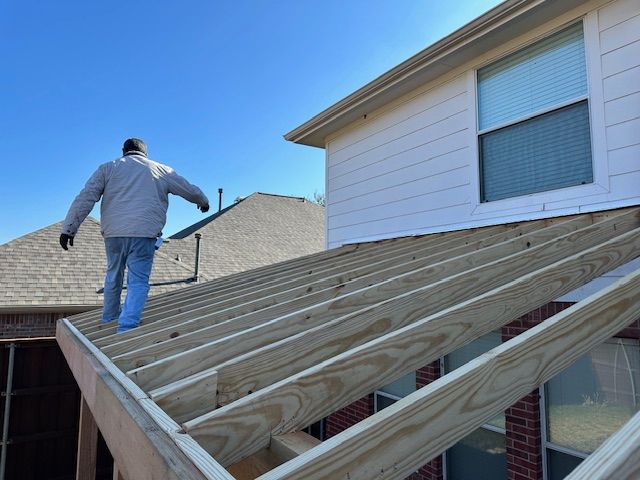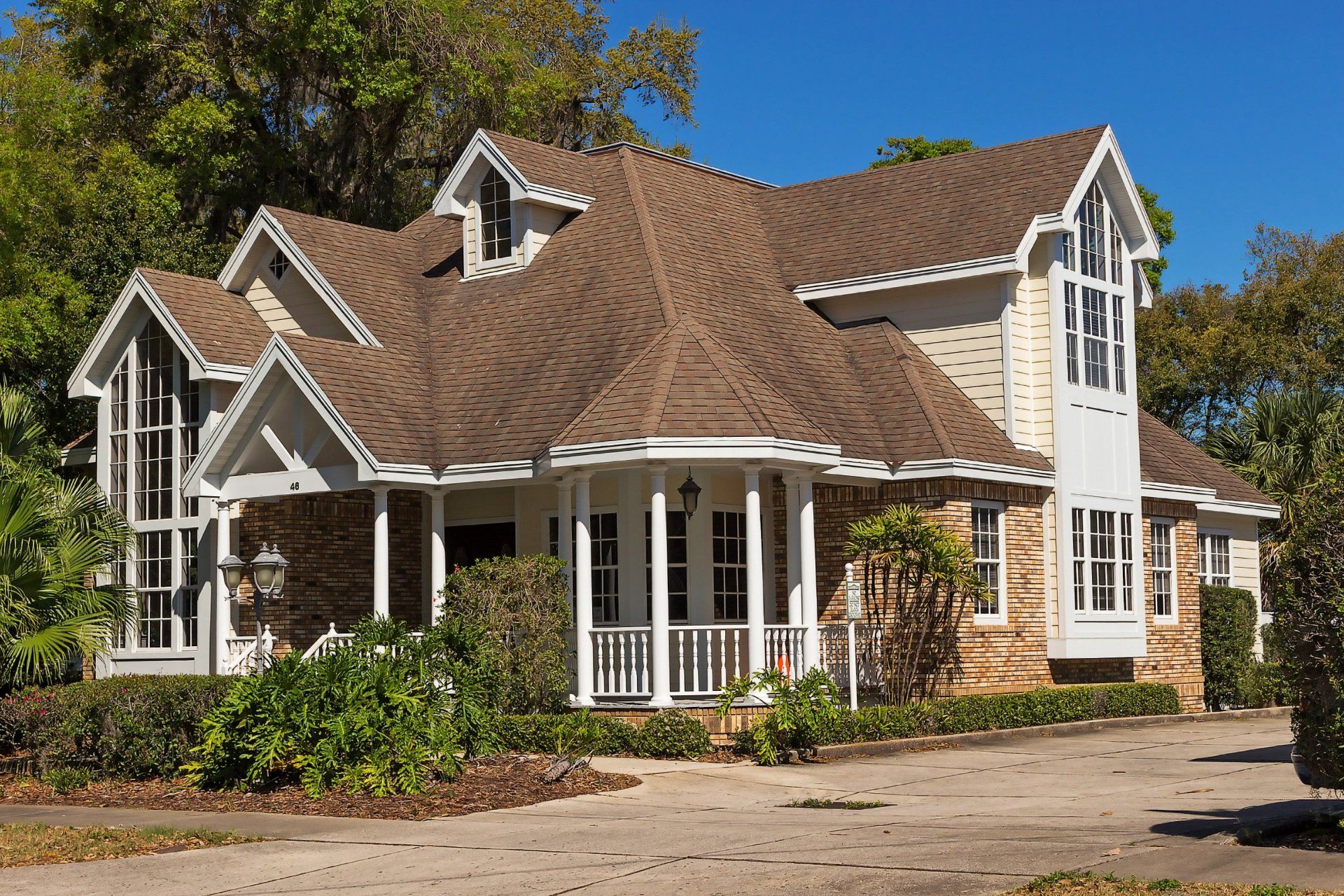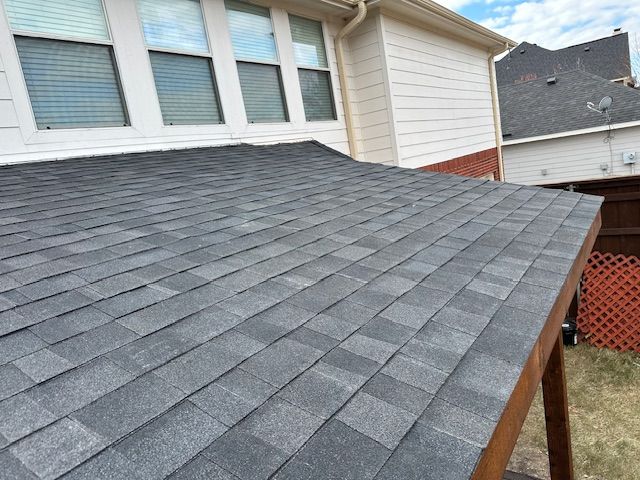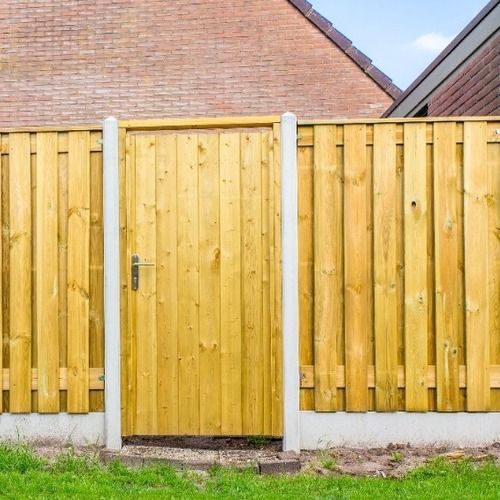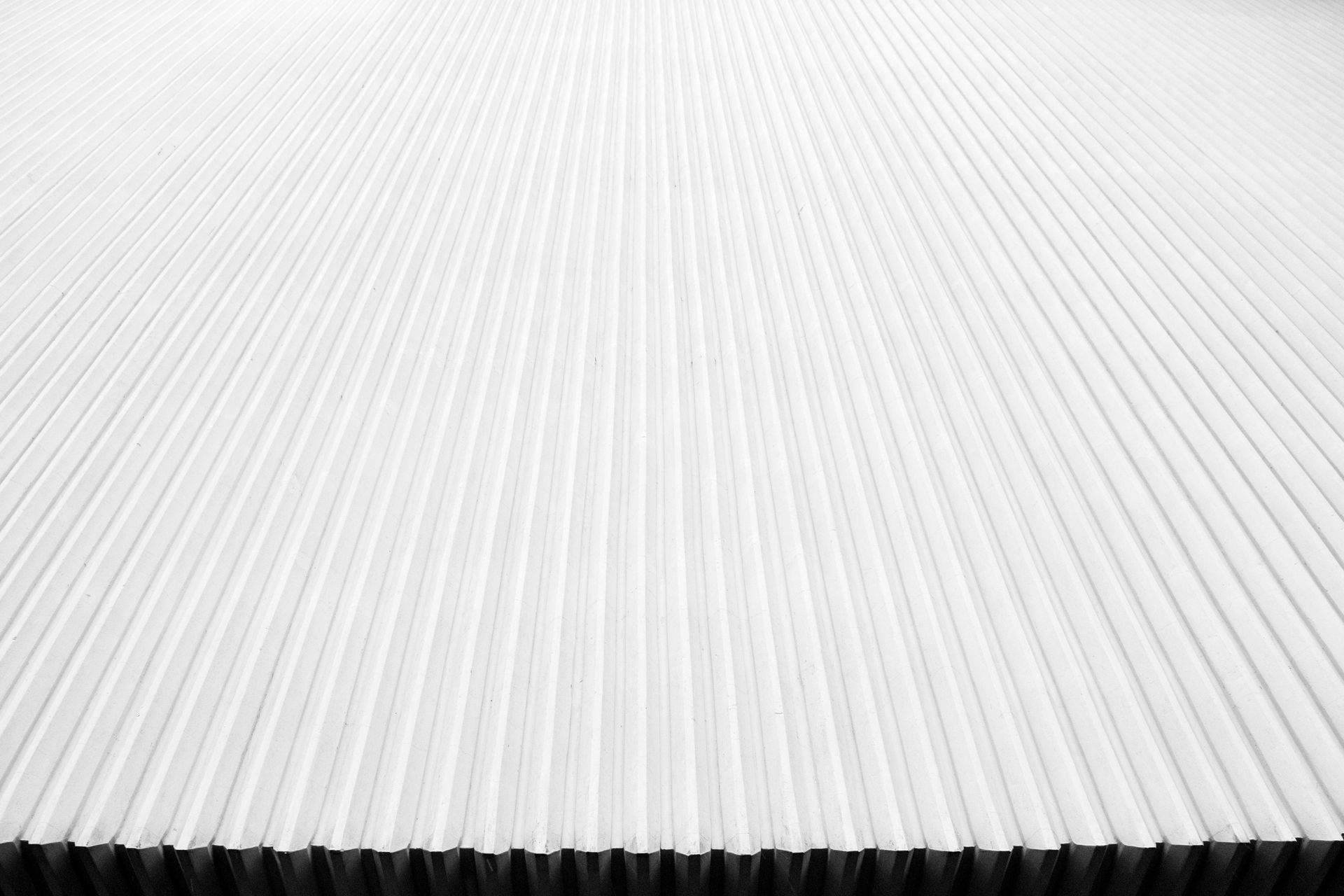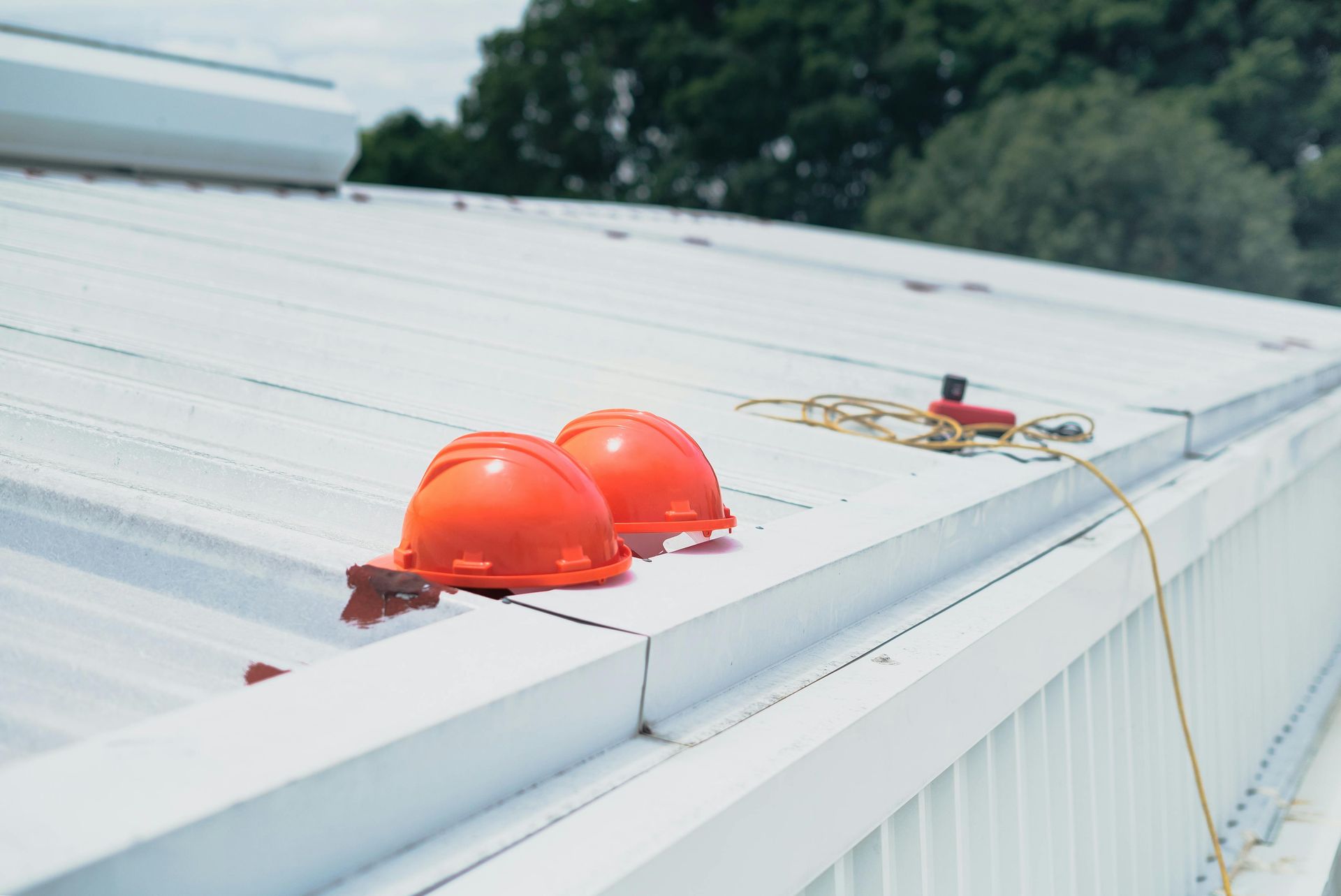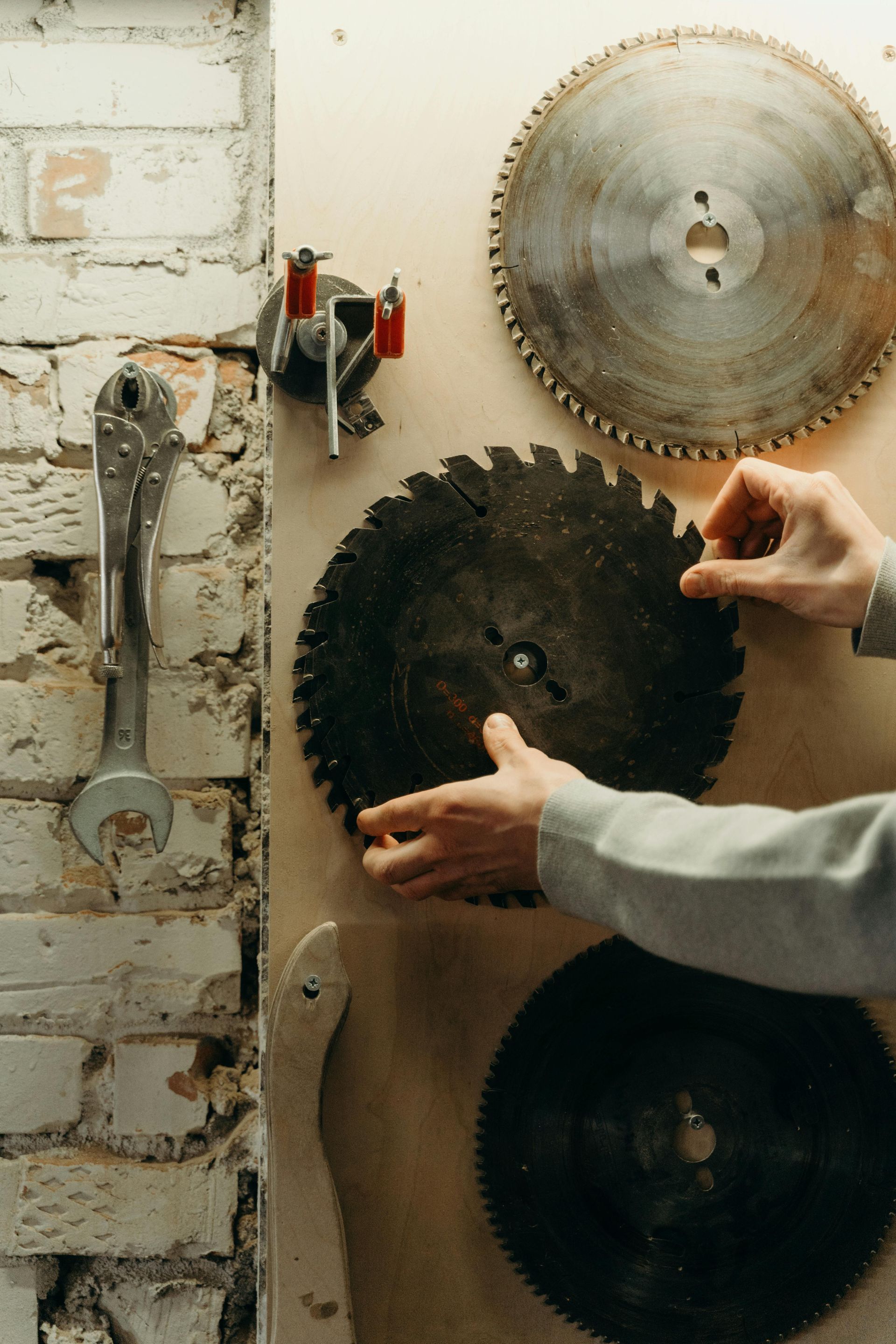Will a New Roof Lower Your Homeowners Insurance?

Table of Contents
Introduction
What You Need to Know About Homeowners Insurance
Why Your Roof Matters to Your Home Insurance
How a New Roof Could Change Your Insurance Costs
What Factors Determine Insurance Savings with a New Roof?
Strategies to Maximize Insurance Savings When Installing a New Roof
Additional Advantages of Getting a New Roof
Final Considerations Before Deciding on a New Roof
Conclusion
Key Takeaways
- A new roof can reduce insurance premiums by enhancing the home's durability and reducing claim likelihood.
- Homeowners should consult with insurance agents to understand specific impacts on rates when considering roof replacement.
- Homeowners insurance covers structural damage, personal property, liability, with premiums affected by the home's age, location, and safety features.
- Roofing material and installation quality play significant roles in insurance savings, with durable materials and proper installation reducing risks and potentially lowering premiums.
- Strategies for insurance savings include choosing the right roofing materials, using reputable contractors, and understanding your insurance policy for potential discounts.
- Additional benefits of a new roof include increased property value, improved energy efficiency, and enhanced safety and protection, which can also affect insurance costs.
- Final considerations before installing a new roof should include evaluating the long-term benefits against the initial costs and potential for insurance savings.
- A new roof not only increases a home's market value but can also lead to substantial long-term savings on homeowners insurance by reducing the likelihood of damage.
Introduction
When considering home improvements, one of the most significant changes a homeowner can make is a roof replacement. Replacing an older roof with a newer, more durable one, such as a shingle roof crafted from asphalt shingles, can lead to lower insurance premiums. This is because a new roof enhances your home's ability to withstand damaging elements like hurricanes, which in turn reduces the likelihood of filing a claim with your insurance company.
Homeowners should consult with their insurance agent to understand how a new roof may affect their insurance rates specifically. Insurance companies often offer discounts for homes that are considered lower risk, and a new roof certainly fits this criterion. By engaging in regular roof maintenance and choosing impact-resistant materials, homeowners can not only protect their home but also potentially lower the amount they pay to an insurance company.
What You Need to Know About Homeowners Insurance
Homeowners insurance is a crucial policy designed to protect your home from unforeseen damage and financial loss. Its primary purpose is to cover the costs of repairing or replacing your property should it be damaged by incidents like fires, storms, or burglaries. Additionally, this insurance helps shield homeowners from potential liabilities in case someone is injured on their property.
Key coverage areas of homeowners insurance include:
- Structural Damage: Covers the cost to repair or rebuild your home if it’s damaged by covered events like fires or storms.
- Personal Property: Provides compensation for damaged or stolen items such as furniture, electronics, and clothing within your home.
- Liability Protection: Helps cover legal or medical expenses if someone gets hurt on your property or if you’re held responsible for damages to another property.
Several factors influence the cost of your homeowners insurance premiums, and understanding these can help you manage your costs effectively:
- Age and Condition of the Home: Older homes or those needing significant repairs often face higher premiums.
- Location: Homes located in areas prone to severe weather, like Florida, may incur higher insurance costs due to increased risk.
- Safety Features: Homes with security systems, smoke detectors, and impact-resistant windows may qualify for lower premiums.
- Deductible Amount: Higher deductibles can lower your insurance premiums, but you’ll pay more out-of-pocket if you file a claim.
- Claims History: Frequent insurance claims can lead to higher premiums; conversely, a clean claims history might lower your insurance costs.
-
To optimize your coverage and possibly reduce your premiums, consult with your insurance agent. They can provide advice on the benefits of updating your home with features like a newer roof or enhanced safety installations that might lower your insurance costs. Shopping around for quotes from multiple insurance companies is also a wise strategy to ensure you get the best coverage at the most favorable rate.
Why Your Roof Matters to Your Home Insurance
Your roof plays a vital role in protecting your home from environmental hazards and therefore holds significant importance in the realm of homeowner's insurance. It acts as the first line of defense against elements like rain, hail, and wind, safeguarding both the structural integrity of your home and the safety of its occupants. Given its crucial role, the condition of your roof is a major factor that insurance companies consider when determining your homeowner's insurance premium.
Insurance typically covers several risks associated with roofing:
- Weather Damage: Covers repairs from storm damage, including effects from hail and wind.
- Leaks: Insures against water damage caused by roof leaks, provided they result from a covered peril.
- Collapse: Coverage includes scenarios where the roof might collapse due to snow, ice, or structural failure.

An old or damaged roof can significantly impact your insurance costs. Insurance companies may offer discounts for homes with new roofs because they are less likely to incur claims related to common roofing issues.
If your roof is older or has sustained damage, it’s wise to conduct a roof inspection and consider roof repairs or even a replacement to not only ensure the safety of your home but potentially lower your homeowner's insurance premium.
How a New Roof Could Change Your Insurance Costs
Installing a new roof can enhance the protection of your home and its contents, thereby affecting your homeowner's insurance in several positive ways. A new roof can actually save you money in the long term by increasing your home's resistance to weather-related damages. By reducing the risk of leaks and structural damage, a new roof ensures more stable and predictable maintenance costs.
Insurance providers highly value updated roofs because they present lower risks of claims resulting from environmental wear and tear or sudden disasters. An updated roof lessens the likelihood of unexpected repairs, which in turn can lower my homeowner's insurance premiums. As a result, insurers are often willing to offer more favorable terms, recognizing the decreased likelihood of costly claims.
When considering replacing your roof, check with your insurance company about potential premium discounts for new roofing, as this can substantially lower home insurance costs. In regions like Florida, where weather risks are high, a new roof in Florida lower insurance costs significantly due to increased durability against hurricanes and storms. Furthermore, exploring options to lower your insurance through home improvements like roofing upgrades is an excellent step towards financial efficiency and enhanced home safety.
What Factors Determine Insurance Savings with a New Roof?
When you install a new roof, several factors come into play that can influence how much you might save on your homeowners insurance premiums. Understanding these can help you make informed decisions that not only protect your home but also reduce insurance costs.
- Roofing Materials: The type of materials used can significantly affect your premiums. Insurance companies see durable materials like metal or slate as less risky and may offer discounts because they reduce the risk of damage.
- Durability and Weather Resistance: A roof's ability to withstand harsh weather conditions, especially in areas like Florida, is crucial. A new roof in Florida could lower your insurance costs by proving its resilience against hurricanes and storms.
- Installation Quality and Building Code Compliance: Proper installation according to local building codes ensures that the roof is secure and meets safety standards. Contact your insurance provider to learn what exactly might qualify for lower premiums.
- Safety Features: Roofs with added safety features such as impact resistance and fire resistance are less likely to incur damage. Insurance companies offer lower premiums for such enhancements because they help lower the potential for costly claims.
-
By considering these factors when you replace your roof, you can maximize your insurance savings. A well-chosen roof not only secures your home against environmental threats but also optimizes your financial outlay in terms of insurance costs.
Strategies to Maximize Insurance Savings When Installing a New Roof
Implementing the right strategies when installing a new roof can lead to significant insurance savings. Here are key steps to consider that can potentially lower your homeowners insurance premiums:
- Choosing the Right Roofing Materials: Opt for materials that enhance durability and are appropriate for your climate. For instance, in areas prone to severe weather, like Florida, choosing materials such as impact-resistant shingles can lead to reductions in insurance costs.
- Selecting a Reputable Contractor: Ensuring that your roof is installed by a credible and skilled contractor is vital. A properly installed roof reduces the likelihood of damage and subsequent claims, which can influence how insurers assess your premiums.
- Understanding Your Insurance Policy: Familiarize yourself with the details of your policy to uncover potential discounts for roofing upgrades. This knowledge is essential to understand exactly how a new roof affects your insurance premium and to leverage possible savings.
- Consulting with Your Insurer: Before you begin the roofing project, discuss it with your insurance provider. This step ensures you are clear on the type of roofing that qualifies for discounts and helps you plan the project in a way that maximizes financial benefits.
-
Adopting these strategies not only secures your home but also ensures you make financially savvy decisions that leverage the benefits of a new roof to reduce your insurance premiums.
Additional Advantages of Getting a New Roof
Installing a new roof brings several benefits beyond just potential insurance savings. Here's how a new roof can enhance your home and your financial well-being:
- Boosts Property Value and Curb Appeal: A new roof significantly enhances the visual appeal of your home, which can increase its market value. This is especially important in competitive housing markets like the Sunshine State, where a good first impression can make a substantial difference in how a property is perceived by potential buyers.
- Improves Energy Efficiency: Modern roofing materials are designed to be more energy-efficient, helping to keep your home cooler in the summer and warmer in the winter. This can lead to lower utility bills and may even qualify for energy efficiency rebates or reductions in your homeowners insurance premiums.
- Enhances Safety and Protection: A new roof provides better protection against environmental hazards such as wind, rain, and debris. This not only keeps your home safer but also can help lower your premium because insurance companies may offer discounts for homes that are seen as less risky to insure.
-
By understanding these additional benefits, you’ll learn exactly how much a new roof can impact not just your immediate financial costs, but also your long-term investment in your home. Whether it’s increasing your home's resale value, reducing energy costs, or minimizing risk, a new roof is a crucial update that affects many aspects of homeownership.
Final Considerations Before Deciding on a New Roof
Before you decide on a new roof, it's crucial to review all the information you've gathered. A new roof can significantly lower your homeowner's insurance, particularly in high-risk areas like Florida, by reducing the likelihood of claims. This reduction not only improves your home’s safety but also affects how your premium is determined, potentially offering notable long-term savings despite initial costs.
Weighing the long-term advantages against the upfront investment is key. A new roof increases your home's value, boosts safety, and could lead to ongoing insurance premium savings due to fewer claims. Understanding the discounts that different insurance companies offer for new roofs helps you make a smart choice. This decision can align with your financial situation now and your goals for the future, enhancing both safety and financial benefits.
Conclusion
A new roof offers more than just aesthetic appeal; it can significantly reduce your insurance premiums. By enhancing the durability and resilience of your home, a new roof reduces the likelihood of damage from environmental factors, which can lead to lower insurance costs. Additionally, this investment increases the overall value of your property, making it a wise financial decision for homeowners looking to improve their long-term security and equity.
To fully realize the benefits of a new roof, it's essential to start by consulting with your insurance provider to understand potential savings and coverage options. For those ready to take the next step, consider reaching out to Trake Construction. We offer expert roofing services that ensure quality and durability, helping you maximize your investment and enjoy peace of mind.

Trake Construction Management, LLC partners with homeowners and business owners to restore and improve properties affected by weather-related damage and general disrepair.
Services

